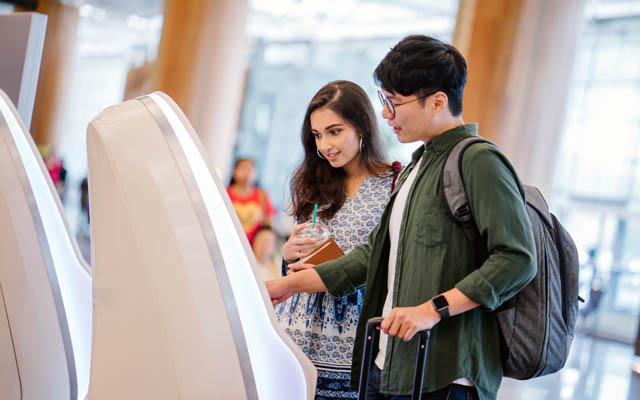Singapore travellers are adopting digital technology at a rapid pace, with increasing use of biometric gateways, mobile platforms and integrated applications to manage their journeys, according to global research by Amadeus.
The report, Connected Journeys: How Technology Will Transform Travel in the Next Decade, examines shifting traveller expectations as digital tools become more common. While innovation is welcomed, reliability remains a key priority.

Singapore respondents showed a higher-than-average willingness to use biometric gateways to replace repeated identity checks at airport touchpoints such as check-in, boarding and immigration. 79% expressed interest, compared to a global average of 69%. 36% said they would use biometric security to reduce queuing times, and 33% were interested in receiving real-time updates on traffic and arrivals. 62% preferred checking in luggage from home rather than at the airport.
Travellers also expressed interest in integrated solutions. 32% favoured a single application to manage all travel details, including flights, accommodation and transport. Among business travellers, 34% preferred a consolidated app, and 32% cited smart luggage tracking as a priority.
Use of AI in travel planning is increasing. Generative AI usage rose from 11% in 2024 to 20% in 2025. Of those using AI, 92% reported benefits such as time savings (43%), easier itinerary creation (37%), and destination discovery (35%). 83% of business travellers said they would find an AI trip assistant useful.
Despite the uptake of digital tools, reliability remains central to traveller confidence. 91% of air travellers reported some level of anxiety during trips, and 76% said they would rebook with providers who manage disruptions effectively.
Javier Laforgue, executive vice president and managing director, Asia Pacific, Amadeus, said Singapore’s adoption of travel technology reflects its role as a regional hub, but added that reliability and support remain essential to building traveller trust.
Digital tools are valued for managing disruptions. 33% of respondents prioritised quick rebooking, and 29% preferred applications that allow self-management. However, human support remains important. 30% still want to speak with a person, and 50% would wait hours for human assistance even if an AI agent were immediately available. Among business travellers, 71% value dedicated communication channels, and 76% want proactive outreach during disruptions.
However, challenges with Generative AI persist. 61% reported difficulties, including too many options (28%), inaccurate information (26%), and the need to verify recommendations (24%). These findings suggest that human judgement remains necessary to support digital tools.
Amadeus concluded that while technology presents opportunities, providers must balance innovation with reliability to maintain traveller confidence and loyalty.

















